For people with disabilities, everyday tasks like going to the store, attending appointments, or simply running errands can be much more challenging without proper accessibility. One of the most important accommodations that make life easier is a disability parking permit. These permits allow individuals with mobility challenges to park in designated spots that are closer to entrances, making transportation more convenient and reducing physical strain.
However, many people are unsure about the process of applying for a disability parking permit. Who qualifies? How do you apply? What are the rules for using one? While the process varies by country and region, the overall goal remains the same—to ensure that people with disabilities have equal access to public spaces.

Understanding Disability Parking Permits
A disability parking permit is a government-issued authorization that allows individuals with disabilities to park in specially designated spaces.
These spaces are typically closer to building entrances and provide extra room to accommodate wheelchairs, walkers, or other mobility aids. In many places, they also grant exemptions from certain parking restrictions, making travel easier for those who need it most.
The primary purpose of these permits is to ensure that individuals with mobility impairments do not have to walk long distances or navigate difficult terrain just to access essential services.
Without these permits, many people with disabilities would face unnecessary physical strain, which could impact their health and independence.
Who Qualifies for a Disability Parking Permit?
While eligibility criteria vary by location, most disability parking permits are issued to individuals who have difficulty walking or require assistive devices for mobility. Common conditions that qualify for a permit include:
- Permanent or temporary physical disabilities that impair mobility, such as limb loss, paralysis, or severe arthritis.
- Neurological conditions that affect movement, such as multiple sclerosis, cerebral palsy, or Parkinson’s disease.
- Respiratory conditions that make walking long distances difficult, such as chronic obstructive pulmonary disease (COPD) or severe asthma.
- Cardiac conditions that limit physical exertion.
- Temporary injuries, such as broken bones or post-surgery recovery that significantly limit mobility.
Some regions also allow permits for individuals with visual impairments or cognitive disabilities if they require assistance navigating parking areas safely.
Caregivers, family members, or drivers transporting individuals with disabilities may also qualify for a permit under certain conditions.
Types of Disability Parking Permits
Many places issue different types of disability parking permits based on the severity and duration of the disability. These commonly include:
- Permanent permits for individuals with long-term or lifelong disabilities. These often require renewal every few years but do not need medical re-evaluation each time.
- Temporary permits for people recovering from surgeries, injuries, or temporary conditions. These are typically valid for a few months up to a year.
- Caregiver or organization permits for caregivers or institutions that regularly transport individuals with disabilities, such as nursing homes or rehabilitation centers.
Each country or state has its own set of permit types, so it’s important to check with local authorities for specific classifications and eligibility.
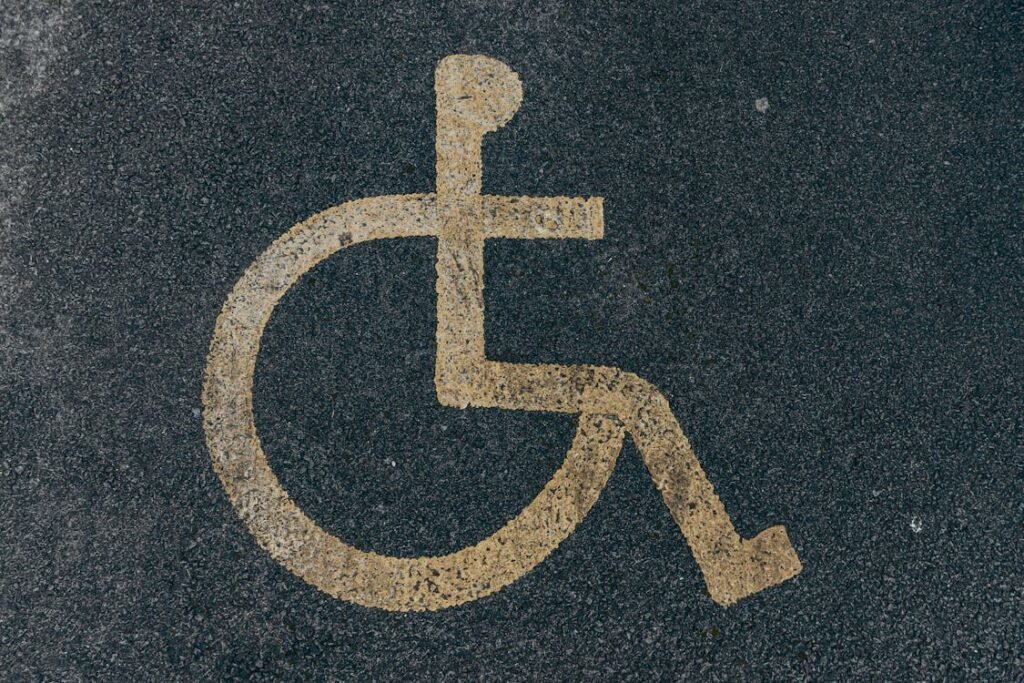
How to Apply for a Disability Parking Permit
Applying for a disability parking permit is a straightforward process, but it requires careful attention to detail to ensure that all necessary documents are submitted correctly.
The exact procedure varies depending on your location, but most applications follow similar steps. Understanding these steps in advance can help you avoid delays and get your permit as quickly as possible.
Step 1: Obtain the Application Form
The first step in applying for a disability parking permit is to obtain the correct application form. Most local transportation or motor vehicle departments provide these forms online or at their offices.
Some municipalities allow applications to be completed electronically, while others require printed forms to be submitted in person or by mail.
If you are unsure where to find the application, visiting your city or state’s official government website is the best place to start. Many sites also provide guides that explain the process and requirements in detail.
Step 2: Get Medical Certification
To qualify for a disability parking permit, you must provide medical documentation proving that you have a condition that significantly impacts mobility.
This is typically done through a medical professional’s certification. In most cases, a doctor, physical therapist, or specialist must complete a section of your application, confirming the nature of your disability and the need for accessible parking.
Medical certification usually includes:
- A diagnosis of your condition and how it affects your mobility.
- Whether your disability is permanent or temporary.
- The expected duration of mobility limitations (for temporary permits).
- The doctor’s signature and medical license details.
It is essential to visit a licensed healthcare provider who understands your condition and can provide accurate information. Some regions may also require additional documentation, such as test results or medical history reports.
Step 3: Submit the Application
Once your form is completed and signed by a medical professional, the next step is to submit it to the appropriate government office.
Depending on where you live, this could be the local transportation authority, the Department of Motor Vehicles (DMV), or a municipal office handling disability services.
When submitting your application, you may also need to include:
- Proof of identity (such as a driver’s license or government-issued ID).
- Proof of residency (such as a utility bill or lease agreement).
- A small processing fee (in some regions, permits are free).
It is always a good idea to make copies of your application and any supporting documents before submission in case they are needed for reference later.
Step 4: Wait for Approval and Receive Your Permit
Processing times for disability parking permits vary by location. Some applications are approved within a few days, while others may take several weeks.
If your permit is approved, you will receive a placard or sticker that must be displayed in your vehicle whenever you park in designated disability spaces.
If your application is denied, you may have the option to appeal the decision by providing additional medical documentation or requesting a review. Understanding your rights and the reasons for denial can help you take the necessary steps to reapply successfully.
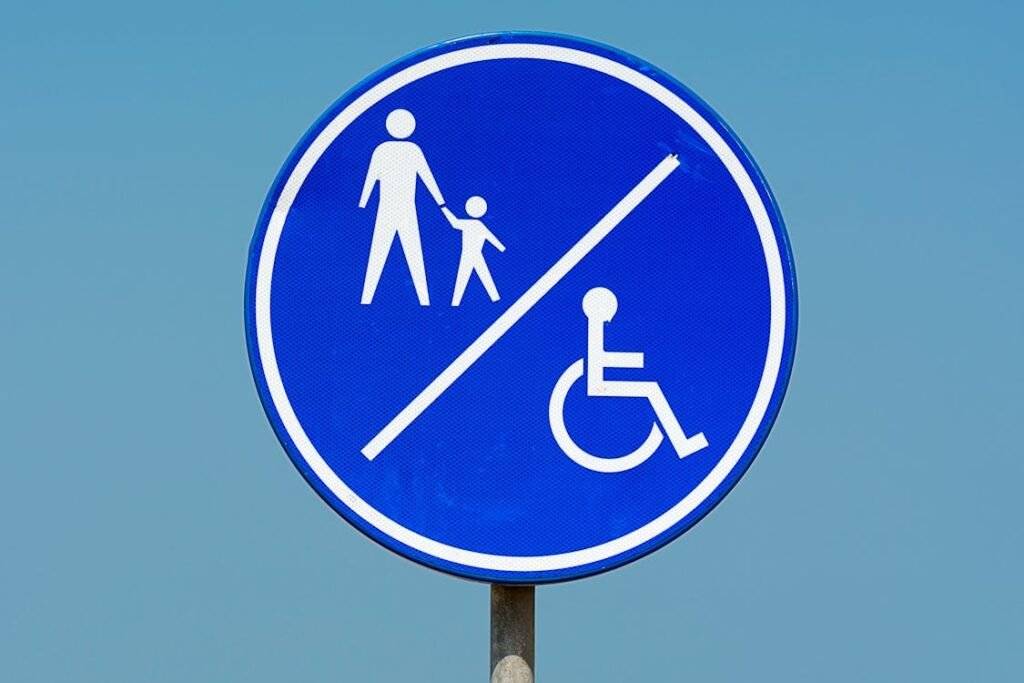
Rules and Responsibilities for Using a Disability Parking Permit
Once you receive your disability parking permit, it is important to understand how and where it can be used. These permits come with specific rules designed to ensure that accessible parking spaces are available for those who truly need them.
Misuse of a permit can result in fines, revocation, or even legal consequences. Understanding your rights and responsibilities will help you make the most of your permit while staying compliant with local regulations.
Where You Can Park with a Disability Permit
Disability parking permits grant access to designated parking spaces marked with the international accessibility symbol.
These spaces are usually located near building entrances and have extra room for wheelchair users and individuals who require mobility aids. In many places, a disability permit may also allow you to:
- Park in time-restricted zones for longer durations than normally allowed.
- Park for free in metered spaces where applicable.
- Use accessible parking areas in public and private buildings, shopping centers, hospitals, and airports.
However, permit holders should always check local parking regulations, as rules can vary from one city or country to another.
Some places may have additional benefits, such as exemptions from certain parking fees, while others may impose limitations on how long a vehicle can be parked in a designated spot.
Who Can Use the Permit?
A disability parking permit is issued to an individual, not a vehicle. This means that only the person with the disability can use it, regardless of who is driving.
If you are being transported by a family member, caregiver, or friend, they can use your permit while parking as long as you are in the vehicle.
Using a permit without the person it was issued to is considered a violation and can result in fines or revocation of the permit.
Many local authorities actively enforce this rule, and misuse of permits is taken seriously to ensure that accessible spaces remain available for those who truly need them.
How to Display Your Permit Properly
Most disability parking permits come in the form of a placard that must be hung from the rearview mirror or placed on the dashboard while parked.
Some regions issue stickers that must be affixed to the windshield. Properly displaying your permit ensures that parking enforcement officers can easily see it and verify that you are allowed to use the designated space.
If you forget to display your permit, you may receive a parking citation, even if you are legally entitled to park in an accessible spot. Always make sure your permit is visible to avoid unnecessary fines.
Renewing and Replacing a Disability Parking Permit
Disability parking permits are not valid indefinitely. Permanent permits often require renewal every few years, while temporary permits may need to be renewed after a few months.
The renewal process typically involves submitting an updated application, and in some cases, another medical certification.
If your permit is lost, stolen, or damaged, you must request a replacement from the issuing authority. Many places allow you to apply for a replacement online or at a local government office, sometimes requiring a small processing fee.
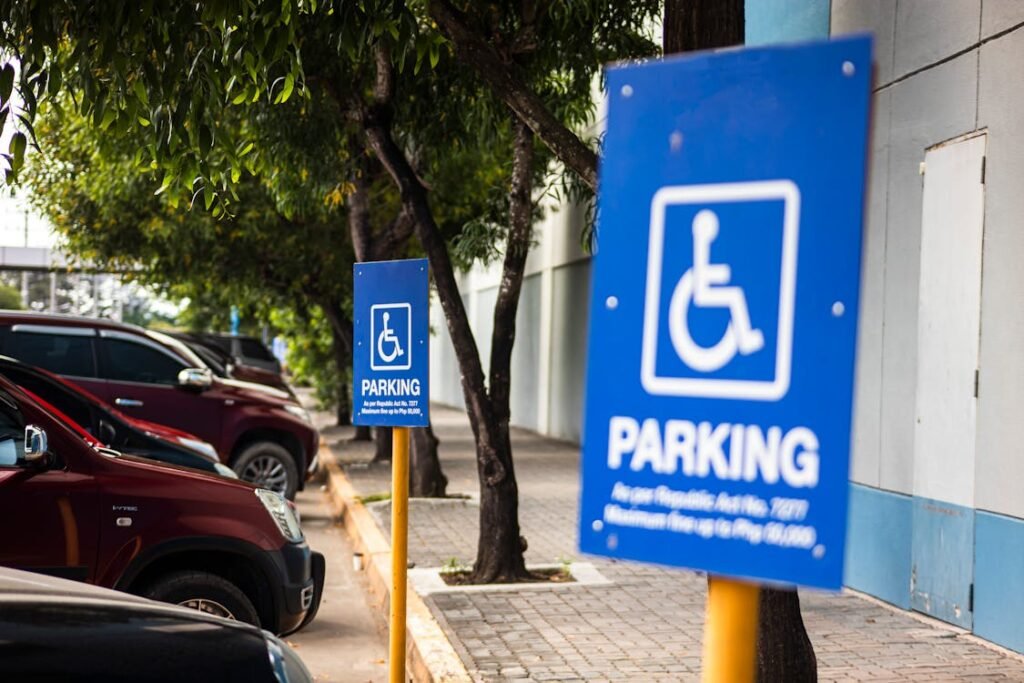
Common Challenges and How to Address Them
While disability parking permits are designed to make life easier for individuals with mobility challenges, many users still face obstacles when trying to access parking spaces.
From misuse of designated spots to bureaucratic hurdles in the application process, these challenges can be frustrating. Understanding these issues and knowing how to address them can help permit holders navigate the system more effectively.
Finding Available Accessible Parking Spaces
One of the biggest frustrations for individuals with disabilities is arriving at a location only to find that all the designated parking spaces are occupied. In some cases, people without disabilities misuse these spots, either out of ignorance or disregard for the law.
Other times, the number of accessible spaces available may simply be too low to meet demand, especially in busy areas like shopping centers, hospitals, and entertainment venues.
To address this issue, many cities have increased enforcement of parking violations, imposing hefty fines on those who misuse accessible spots.
Some locations also offer mobile apps or online maps that show real-time availability of disability parking spaces. If you frequently visit a place where accessible parking is limited, it may be helpful to call ahead and inquire about alternative parking options.
If you witness someone illegally occupying a designated space, you can report the violation to local authorities. Many areas have a hotline or online complaint system where you can submit details and photos of the violation.
Bureaucratic Delays in the Application Process
Applying for a disability parking permit should be a simple process, but in some regions, delays and administrative issues can make it more complicated. Processing times can vary, and missing paperwork or unclear eligibility criteria can cause further setbacks.
To avoid unnecessary delays, make sure you carefully review the application requirements before submitting your paperwork. Double-check that all sections are filled out correctly and that your medical certification is signed by a licensed healthcare professional.
If your application is taking longer than expected, contacting the issuing office directly can help clarify any issues or speed up the process.
If your application is denied, don’t lose hope. Many jurisdictions allow applicants to appeal the decision by providing additional medical documentation or requesting a review.
Understanding the reason for denial can help you take the necessary steps to strengthen your application.
Traveling with a Disability Parking Permit
If you frequently travel between different cities, states, or even countries, you may wonder whether your disability parking permit will be recognized elsewhere.
While many permits are valid across regions, some locations require additional documentation or a temporary visitor permit.
Many countries have reciprocal agreements, meaning a permit issued in one country may be valid in another. However, it is always best to check local regulations before traveling.
Some places have different rules for displaying permits or accessing certain benefits, so understanding the specific policies of your destination can prevent confusion.
If you are traveling internationally and unsure about the validity of your permit, contacting the local transportation department or an embassy can provide guidance on what steps to take.
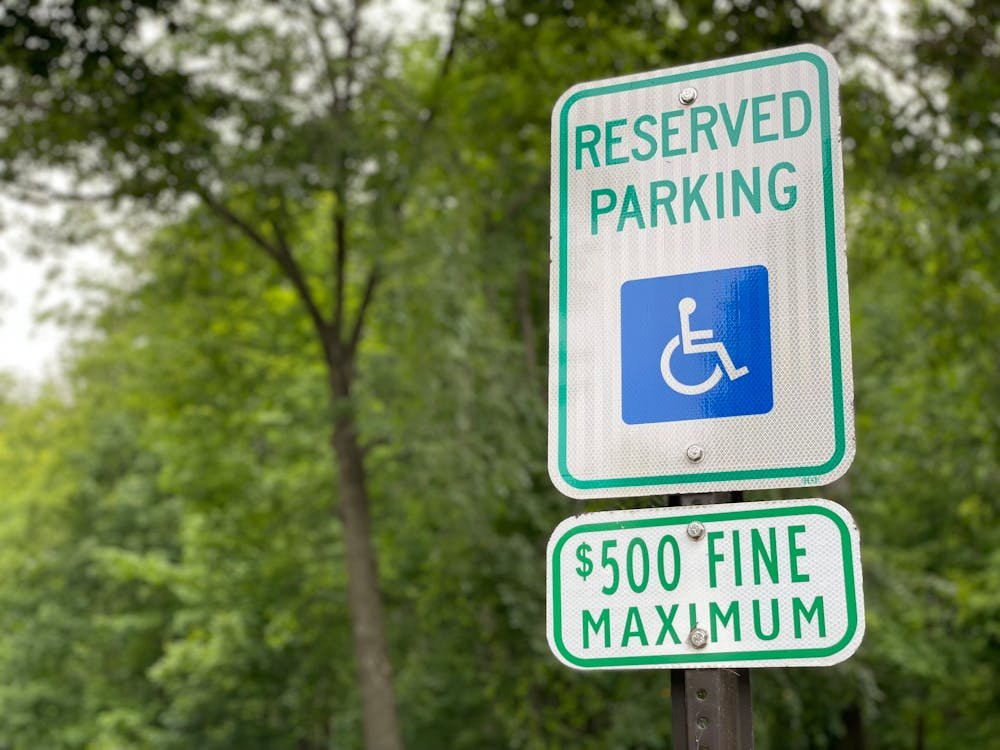
The Impact of Disability Parking Permits on Independence and Quality of Life
For individuals with disabilities, mobility is more than just getting from one place to another—it’s about independence, dignity, and the ability to participate fully in society.
Disability parking permits play a crucial role in making everyday life more accessible, removing unnecessary barriers that can make simple tasks exhausting or even impossible.
Reducing Physical Strain and Fatigue
Without accessible parking, individuals with mobility impairments may have to park far from their destination, forcing them to navigate long distances, uneven surfaces, or crowded areas.
For those who experience chronic pain, fatigue, or muscle weakness, even short walks can take a toll.
A disability parking permit ensures that individuals can park closer to their destination, significantly reducing the physical effort required to complete daily tasks.
This is especially important for those with conditions like arthritis, spinal injuries, or respiratory diseases, where excessive movement can cause discomfort or exacerbate symptoms.
Enabling Greater Participation in Work and Social Life
Access to convenient parking doesn’t just benefit people when they go shopping or visit the doctor—it also impacts their ability to work, attend school, and engage in social activities.
Many workplaces, universities, and public venues have designated disability parking spaces, making it easier for permit holders to remain active and independent.
Without accessible parking, individuals with disabilities may be discouraged from attending events, meeting friends, or pursuing job opportunities due to the difficulty of getting in and out of buildings.
By ensuring that accessible parking is available and properly enforced, communities can help people with disabilities stay engaged in all aspects of life.
Promoting Inclusion and Equal Rights
A disability parking permit is more than just a convenience—it’s a recognition of the fact that people with disabilities have the same rights to public spaces as everyone else.
Accessible parking is a small but significant part of the larger movement toward equal opportunity and inclusion.
When communities prioritize accessibility, they send a message that individuals with disabilities are valued members of society.
This not only improves the experiences of those directly impacted but also raises awareness about the importance of designing cities, businesses, and public spaces with inclusivity in mind.
Supporting Caregivers and Family Members
For individuals who rely on caregivers or family members for transportation, disability parking permits make daily routines much easier.
Parents of children with disabilities, for example, can use these permits to ensure that drop-offs at school or medical appointments are as smooth as possible.
Similarly, elderly individuals with mobility challenges benefit from caregivers having easy access to designated parking when assisting with errands.
By reducing logistical barriers, disability parking permits help caregivers provide better support while minimizing the stress that often comes with transportation challenges.
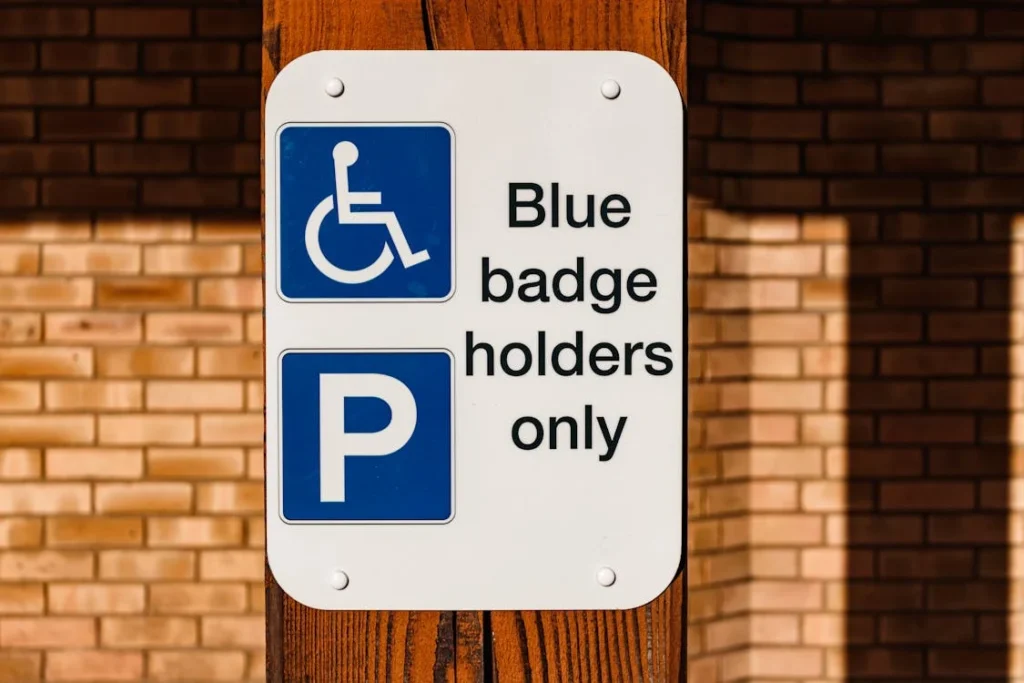
The Role of Technology in Improving Disability Parking Accessibility
As cities and transportation systems evolve, technology is playing a growing role in making disability parking more efficient and accessible.
From smart parking systems to mobile apps and sensor-based enforcement, innovation is helping to reduce common issues like permit misuse, lack of available spaces, and difficulties in locating accessible parking spots.
Smart Parking Systems for Real-Time Availability
One of the biggest challenges for disability permit holders is finding an available parking space when they need it. In busy areas, designated accessible spots are often occupied, forcing individuals to search for alternatives that may not be as convenient.
To address this issue, many cities are implementing smart parking systems that provide real-time information about the availability of accessible parking spots.
These systems use sensors embedded in parking spaces to detect whether they are occupied. The data is then relayed to a mobile app or a website, allowing drivers to see which spaces are open before they even arrive at their destination.
Some cities have gone a step further by integrating reservation systems, where disability permit holders can book an accessible parking space in advance, ensuring that they have a spot when they need it.
This can be particularly useful for high-traffic areas like hospitals, government offices, and event venues.
Mobile Apps for Finding and Navigating Accessible Parking
Technology is also making it easier for individuals with disabilities to locate accessible parking spaces more quickly. Several mobile apps have been developed to help users find and navigate to nearby designated parking spots.
These apps, often created through collaborations between disability organizations and tech companies, provide features such as:
- GPS-based navigation to the nearest available accessible parking space.
- User-generated reports that allow people to mark whether a space is occupied or improperly used.
- Parking regulations and time limits for specific locations.
- Integration with voice assistants for hands-free operation.
Some of the most advanced apps even use AI-powered image recognition to verify whether a parking space is truly accessible or if it has been altered, blocked, or misused.
Digital Permits and Sensor-Based Enforcement
Permit misuse remains a significant issue, with some people using fake permits or borrowing permits that were issued to someone else. To combat this problem, many regions are moving toward digital disability parking permits that are linked to a person’s identity and vehicle.
Instead of physical placards that can be stolen, lost, or forged, digital permits are registered in an online database and verified through license plate recognition technology.
Parking enforcement officers can use handheld devices or automated parking cameras to scan a vehicle’s plate and instantly check if the permit is valid.
Some cities are also introducing sensor-based enforcement, where accessible parking spaces are equipped with pressure or motion sensors.
These sensors can detect whether a vehicle has parked without an authorized permit and automatically issue a fine to violators. This approach not only improves compliance but also ensures that accessible spaces remain available for those who truly need them.
The Future of Disability Parking with AI and Autonomous Vehicles
As artificial intelligence (AI) and self-driving cars continue to develop, they are expected to further improve accessibility for individuals with disabilities.
Autonomous vehicles could allow people with mobility impairments to be dropped off at entrances while the car parks itself in a designated accessible spot.
AI-powered systems could also analyze traffic and parking patterns to suggest the most efficient parking options for disability permit holders.
By integrating technology with accessibility, cities can ensure that disability parking is more efficient, fair, and convenient.
These innovations are not just about parking—they are about empowering individuals with disabilities to navigate their surroundings with greater ease and independence.
Conclusion
Disability parking permits are more than just a convenience—they are a necessity that allows individuals with mobility challenges to move freely, safely, and independently. By providing designated parking spaces close to entrances and reducing physical strain, these permits help people with disabilities participate fully in work, social life, and daily activities.
While the application process can sometimes be complex, understanding the requirements and steps involved makes it easier to secure a permit. Enforcing proper use of these permits is equally important to ensure that accessible parking remains available for those who truly need it.
With advancements in technology, including smart parking systems, mobile apps, and digital permits, the future of disability parking is becoming more efficient and fair. As societies continue to prioritize accessibility, these improvements will help create cities that are more inclusive for everyone.
At Robobionics, we are committed to empowering individuals with disabilities through innovative solutions. If you or a loved one are looking for advanced prosthetics and assistive devices, visit our website today and take a step toward greater independence.




I need for an Accessible Parking Permit for my son